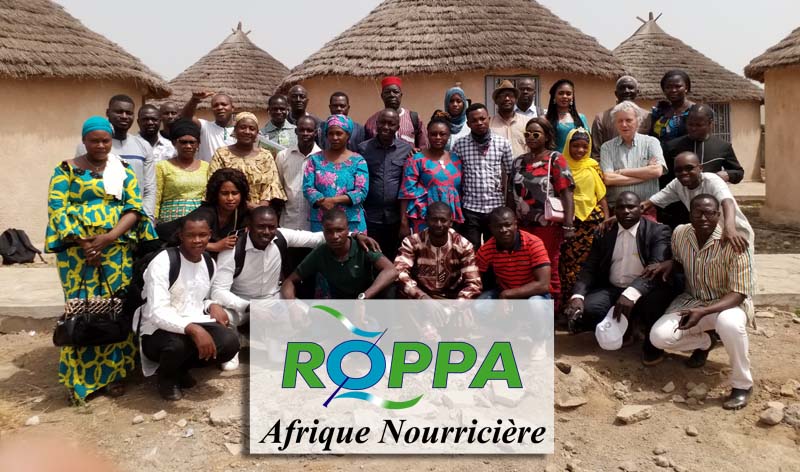For West African farmers, the Réseau des Organisations Paysannes et des Producteurs Agricoles de l’Afrique de l’Ouest, or ROPPA, is their champion. ROPPA is dedicated to building a West African farmer movement representative of all components of the rural world, so pride of place is reserved for women, men, and young people whose life and work are based on family farming systems. To ensure the safety of smallholders and family farmers organized in member countries, the network has built a structure that makes farmer organizations, credible, and essential groups in the agro-sylvo-pastoral and fisheries sectors.
Created in Cotonou, Benin, 20 years ago, ROPPA is a network of farmer organizations and agricultural producers in West Africa. ROPPA is an umbrella organization who represents 13 national farmer organizations located in Benin, Burkina Faso, Cap-Vert, Cote d’Ivoire, Gambia, Ghana, Guinea, Guinea-Bissau, Liberia, Mali, Niger, Nigeria, Senegal, Sierra Leone, and Togo. The headquarters are currently in Ouagadougou, Burkina Faso.
ROPPA pursues multiple objectives to promote and defend efficient and sustainable peasant agriculture at the service of family farms and agricultural producers. It also informs and trains members of farmers’ organizations and associations of agricultural producers, based on the relevant experiences of members and other development actors.
Also, the network encourages and supports the establishment of farmer organizations and agricultural producers in each country with the goal of including them in the definition and implementation of development policies and programs.
As a network, they also allow for dialogue between actors in various sectors to ensure that the concerns of all producers are better taken into account. To support producers, ROPPA has a regional college for women, a regional college for young people, and four sectoral frameworks for rice farmers, dry cereals, fishing and livestock.
Its actions, focused mainly around good governance, have cleared the way for successes that are palpable today. This includes systematic consultations between farmer organizations for the development of policies, strategies, and programs for the agricultural sector at the regional level and national. These policies take into account the needs of family farms and are based on the family farming model, because, without the intervention of farmers’ organizations, industrial agriculture would currently dominate the region.
The current challenge is to maintain a harmonious balance between family farming and agro-industry. They are also concerned with improving the representation of women and young people in policy making. Finally, ROPPA would like to develop economic services to facilitate access to inputs, finance, and markets.
Ibrahima Coulibaly is the president of the board of directors of ROPPA. He says : “To do this, we need flexible funding that supports us in our frameworks and with our work tools. The project approach sometimes hinders this because short-term actions do not always allow for convincing impacts. Administrative formalities, although necessary, take a lot of time and energy. There is little left for the implementation of actions and given that the projects come under short deadlines, it remains a challenge to ensure the changes we want to induce.”
ROPPA is currently engaged in the implementation of many projects, two of which with the support of international partners. One aims to increase income and improve livelihoods, as well as food and nutritional security, as well as the security of 15 million family farms. The other is focused on strengthening the resilience and capacities of women in rural areas.
In this United Nations Decade for Family Farming, which emphasizes agricultural and rural growth driven by smallholders, ROPPA prioritizes the securing of factors of production and sustainable improvement in productivity and market access for family farmers. In addition, they would like to improve access to local services, in particular agricultural advice, improve the consumption of local products and increase the participation of women and young people in agricultural value chains.
_____
Story written by MELI Rostand
To learn more about ROPPA, go to:
Site web: www.roppa-afrique.org
Facebook: @roppawestafrica
Twitter: @roppainfo

